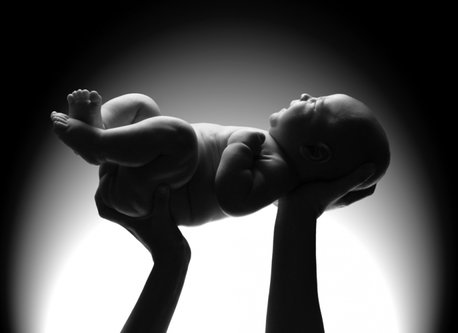There has been a flurry of activity and discussion in the mental health community as two recently published studies shed new light on the possible connection between PTSD and women who have difficulty becoming pregnant and undergo fertility treatments, as well as those who succesffuly become preganant and go through childbirth.

The first study looked at the psychological effects of fertility treatments. This study, initiated by Allyson Bradow, director of psychological services at Home of the Innocents, a nonprofit organization in Louisville, KY, was presented at last week’s annual American Psychological Association convention. Bradow and her colleagues contacted 142 individuals (97% of whom were women) who had undergone fertility treatments and visited online support groups, and asked them to complete an online survey in order to determine if they potentially met criteria for diagnosis of PTSD. The researchers report that according to their survey, 46% of people interviewed met DSM-IV (Diagnostic and Statistical Manual-IV, the gold standard of mental health disorders and diagnoses) criteria for a diagnosis of posttraumatic stress disorder, or PTSD. Common symptoms included psychological reactivity at reminders of their trauma (e.g., TV commercials about babies or birth), as well as feeling cut-off and detached from others, hopeless, irritable, and reporting that the experience had fundamentally changed their personality.
Researchers at Tel Aviv University conducted the second related study, and findings were recently published in the Israeli Medical Association Journal. In this study 89 women between the ages of 20-40 were interviewed within 2 to 5 days of giving birth. Results indicated that 25.9% of the women interviewed displayed symptoms of post-trauma, 7.8 percent suffered from partial post-trauma, and 3.4 percent exhibited symptoms of full-blown PTSD. These researchers reported the most common symptoms experienced were: flashback of the labor, avoidance of discussions related to or about the event, physiological reactions to these discussions (e.g., increased heart rate and/or heart palpitations) and unwillingness to consider having another child. The researchers also reported that the most significant predictor of later PTSD was pain management, and that about 80 percent of women who experienced partial or full post-trauma symptoms had delivered via natural childbirth, without any pain relief.
These two studies have created lengthy discussions and much debate in the field. First, some clinicians are unsure if either of these experiences, particularly the first one, qualifies as “life-threatening,” pre-requisite criteria for the diagnosis of PTSD. Some, like Bradow argue that the threat of not being able to pass on our genetic code, or the threat of not being able to live the life we envisioned, should qualify as traumatic and life threatening. Others are troubled by the possible implications, and interpretations of these findings, particularly the second study. Some people, like myself, wonder if this means that we as a society have become so far removed from the natural process of bearing and delivering a child that we experience it as traumatic? What does this say about our view of motherhood? What does this say about our relation to our body? Haven’t generations of women before us given birth without the medical model currently used today? Does this possibly mean that pregnancy and delivery have become so medicalized and pathologies that we now face possible psychiatric repercussions from it? This definitely left me thinking, wondering, and wanting to ask and learn more about this topic.
However, in the meantime, what is very clear to me and bears no controversy is the fact that in our Western medical model we leave very little room for matters of the mind when it comes to the topic of health. None of the women going through those fertility treatments, and few patients at regular medical practices are ever educated about psychological and emotional factors as they pertain to their overall health. It seems clear to me that these results, which suggest that women (and men) who undergo fertility treatment are SIX times more likely than the general population to experience traumatic reactions, should be taken seriously. They should remind us that when it comes to health, matters of the mind do matter. We, as a medical and mental health community need to take this seriously, and make an active effort to discuss, educate, and offer mental health services to everyone who walks through our office door.
Showing 3 reactions
Sign in with
Facebook TwitterIn any case, I think the findings say a lot about the fact that childbirth has become drastically medicalized, feared, and misunderstood. And anything we are trained to fear has the potential to become traumatic.